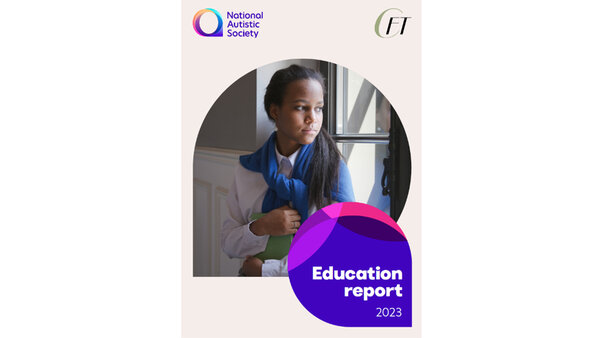Education Report 2023
Published on 30 May 2023

It’s the little things, being able to use a quiet room, not having to wear a uniform that feels uncomfortable or being able to use an exit pass to leave the classroom when you’re too overwhelmed to speak. These simple things can change now and can make such a difference.
That is what I have found from six months of working on the National Autistic Society’s new Education report. I’m Jake, and I work in the policy team.
Before I began this report, I knew that many autistic children in England weren’t getting the support they need at school. Only one in four autistic students feels happy at school. However, when I spoke to autistic children and young people, the sheer scale of the problem was clear.
The foundation of our Education Report is the stories, experiences and thoughts of autistic people and it is underpinned by work with the National Autistic Society’s Young Ambassador Group. Through lots of conversations we began to understand the principal issues with schools. It emerged that sensory overload, understanding amongst teachers and peers, transitions, bullying and exams were the biggest issues.
As part of our research, we also held 33 interviews with autistic children, parents and teachers at mainstream schools, with and without Cullum Centres - Cullum Centres are special places that are built in mainstream schools which are designed for autistic people and filled with specially training staff, I talk more about them below.
I found some of the stories of children being left without support heart-breaking and saw the necessity for systemic change in education in England. I was also struck by the powerful stories of where schools had got it right. Parents spoke of how much of a difference one teacher can make. Students spoke of how important basic adjustments such as quiet areas can be. Students who attended mainstream schools with a Cullum Centre spoke passionately about the support they received.
The report isn’t just about the things that aren’t working. It is full of examples that demonstrate the power that small adjustments can make to the lives of autistic children and young people. A sense of optimism grew from learning and writing about these stories.
As I said above, what struck me, was how simple changes that could make a huge difference weren’t being made. That’s why the report includes recommendations such as allowing students to use exit passes and fidget toys in class. Changes like these could be made tomorrow, and drastically change the experience of autistic pupils. I’d urge all school staff to read the report and implement the recommendations.
We know fundamental changes are needed from Government. Teachers and schools can only do so much to fix a broken system. We recommend the Government sets up an Autism School Places Taskforce and introduces mandatory autism training for all school staff. These recommendations could transform the experience of autistic children across England.
How to get involved?
This report is the first step in convincing and working with government to commit to the recommendations in the report. However, we can’t do it alone, we need your help to ensure every child is supported in school. In the coming weeks, we will be launching a campaign to create change in our education system. Please sign up to hear from our campaigns network to get involved with this campaign. Together we will work to improve the access to education for all autistic children.
Sign up to our campaign updates here
Quotes:
“She did a ‘brilliant’ job of masking everything she found hard. From the school’s perspective, she was a very polite child who followed all the rules, who did as she was told, who was keen... she didn’t stick her head above the parapet in any way, so when I was saying she’s coming home absolutely overwhelmed and utterly distraught, they just couldn’t see it.” - Parent of an autistic child
